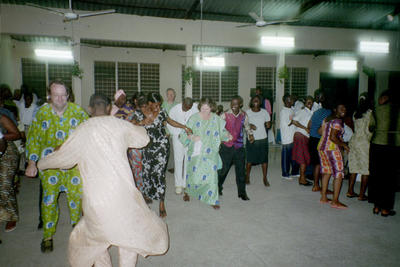This article was published in its entirety at www.brazzil.com. Let's admit, nothing like the culture clash of a feuding husband and wife.
http://www.brazzil.com/content/view/9704/78/
Brazilian Elections: Hell Hath No Fury Like a Brasileira Scorned
Written by Bryan Thomas Schmidt
Friday, 29 September 2006
What to do when your divorce is dragged out in long court proceedings... For Maria Christina Mendes Caldeira, the answer was simple: run against her ex-husband for Congress. Given Brazilian politics' propensity for dirty campaigning, the result is nonetheless one of the most unique and interesting political races to be decided in Sunday's election, at least for São Paulo voters -at least for soap opera fans.
Their divorce contest alone has gotten them plenty of notice in the press. There was a widely noted incident in 2004 when Caldeira was forced out of the couple's Brasília mansion, when her estranged husband, Liberal Party president and current Congressman Valdemar Costa Neto had the water and electricity shut off at the house in order to force her out.
Caldeira first struck back against her ex politically during national televised congressional hearings last year about the alleged political slush fund, as covered by the Brazzil newsroom, when she stepped forward to testify of personally seeing her ex-husband, Costa, hiding stacks of cash in his secret safe.
Costa testified that the funds were supposedly to finance the political campaign for the second round of presidential elections, a version that the panel handling the investigation, The Chamber of Deputies Ethics Council (Conselho de Ética e Decoro Parlamentar da Câmara), found implausible.
Facing impeachment, Costa had little choice but to resign. Now he is seeking another four year term against the most unlikely of opponents. In fact, his ex-wife has become his chief opposition for the seat and continuation of a 14-year political career.
This votes-for-cash scandal has dominated the politics of Brazil over the past year and currently threatens to bring down the government of President Lula.
The votes for cash scandal, known as the Payoff CPI (CPI do mensalão), began on June 6, 2005, when a Brazilian Congressional deputy, named Roberto Jefferson, told daily Folha de S. Paulo that Lula's PT party had paid a number of congressmen 30,000 reais (about US$ 13,000) a month to vote favorably for the party's legislation. The end result was a ballooning scandal during which many congressmen, including Costa, resigned or were fired.
At the heart of this race lie core questions faced by Brazilian voters: Does political corruption really matter? Does honesty matter in Brazilian politics? So far, polls seem to show the electorate hardly cares.
Political consultants expect 70% of Congress to return to office, including Costa and others who were involved in the slush fund payments scandal. Though his own administration has been plagued by some of the worst political scandals in decades, President Lula is widely expected to be reelected for another 4-year term.
Caldeira, the daughter of an old money real estate baron, who studied in Europe is facing Costa, her ex-husband, son of a provincial mayor, who grew up in Brazilian politics, with great odds against her.
She lacks his fund-raising ability, political experience and connections. But that hasn't stopped her from making herself known. She led a group of protestors armed with brooms and buckets in cleaning up Liberal Party headquarters, symbolically at least in Costa's own home town of Mogi das Cruzes.
And when a Costa supporter threw a shoe at her, she returned the favor with a bucket of water -for which she wound up arrested.
She is frequently seen campaigning and handing out fliers from her 1984 Volkswagon motor home, covered with her slogan Tenho Atitude and blasting her campaign theme song from a speaker system, when it works.
The van is frequently plagued with mechanical difficulties which inhibits travel, let alone blaring the music. Her ex, on the other hand, is running what is reportedly one of the best financed congressional campaigns in the country.
Even Costa's reputation for heavy gambling, corruption, and a temperamental personality - all aided by the testimony of Caldeira herself, of course - does not seem to deter voters. There are also those who testify of Costa's caring for his constituents, such as the adolescent he helped get treatment at a top hospital after an accident. But it did lead to the invitation from the Green Party to run against her ex, candidate for the Liberal Party.
Given the Brazilian system of proportional representation, whereby each party gets a quota of congressional seats, the two could wind up serving together in Congress. That would make for an interesting reunion for press and voters, if not for Costa and Caldeira. And they still have to settle their divorce, which has dragged on since 2004.
Regardless of the outcome, the prospect of a candidate whose leading slogan consists of "Vote For Me - I'm his Ex" beating an experienced incumbent makes for one unique and interesting race. Forget about the fact that the candidates are often too busy sniping to discuss any significant issues. These days few candidates seem to find the time for that, even in the United States.
Bryan Thomas Schmidt, M.A. is the Founder and Executive Director of Anchored Music Ministries, Inc., St. Louis, Missouri, USA, which provides leadership development training in the worship arts around the world. He has traveled four times to Ghana, West Africa, four times to Brazil, and also worked in Mexico and the U.S. Anchored Music teams have also worked in Bulgaria, and Italy.
His articles have been published in newspapers and magazines around the U.S. He has also served as guest lecturer and instructor in Missions at Covenant Theological Seminary in St. Louis, Missouri. He can be reached at www.anchoredmusic.com.
hope, imagination, and action
6 months ago







